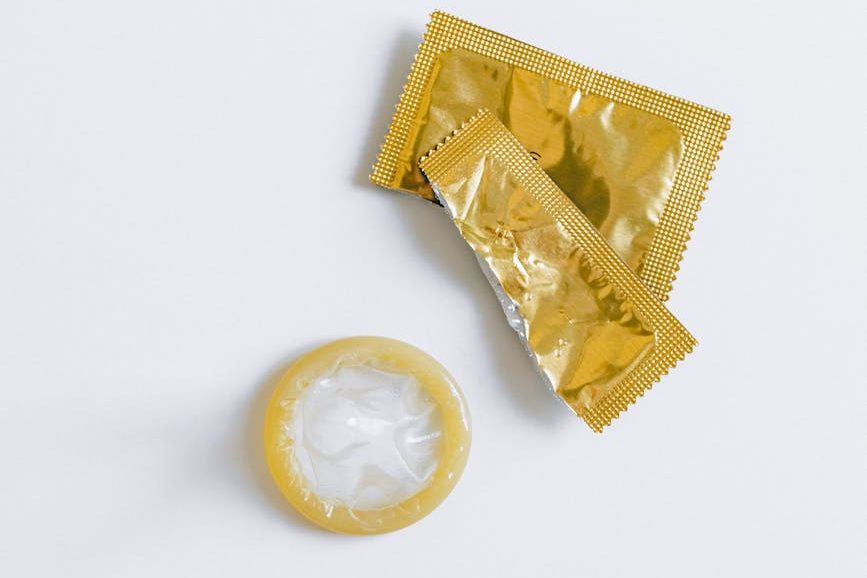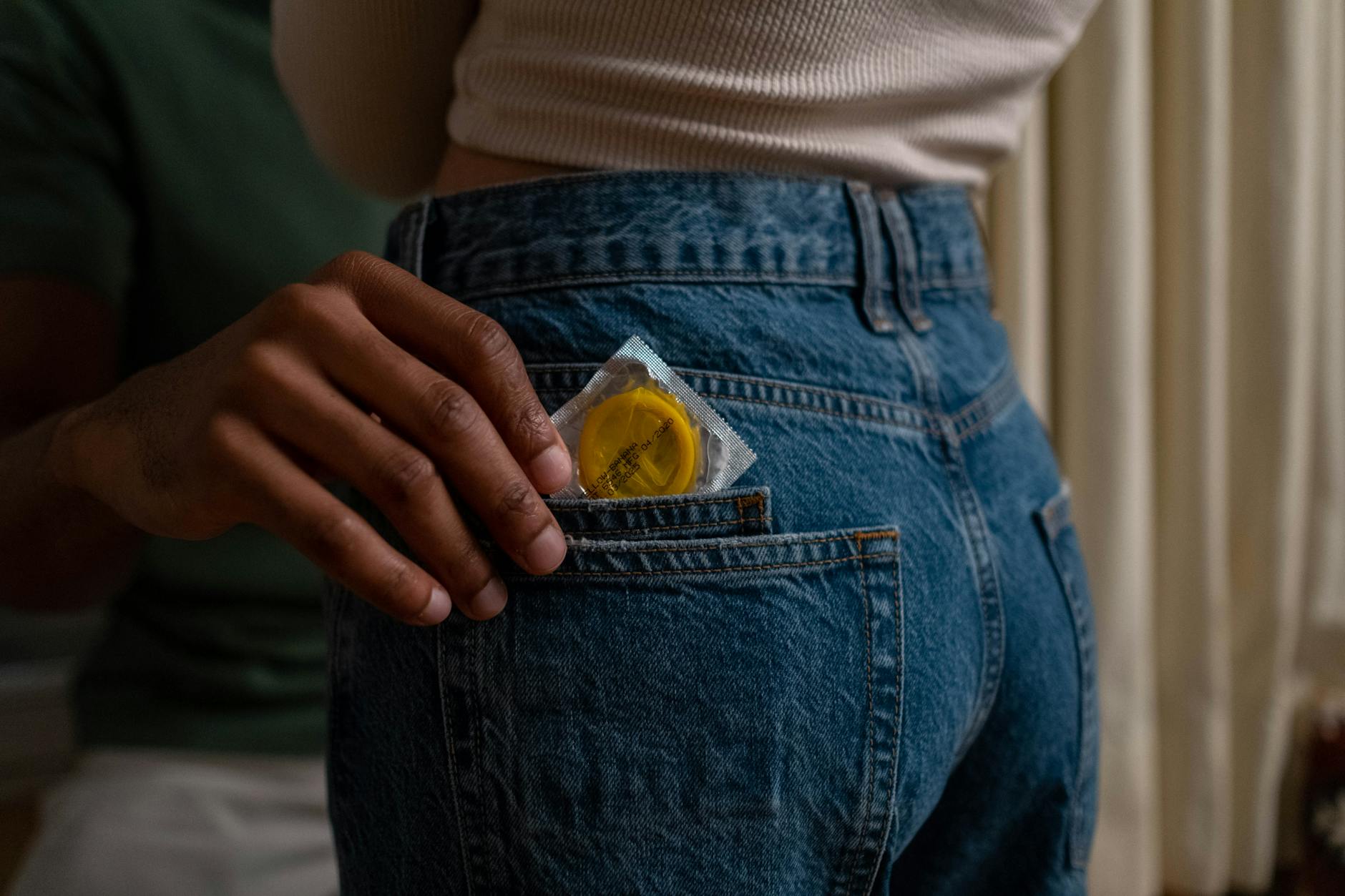The best way to prevent the transmission of STIs is using condoms during sex and by getting regularly tested.
Condoms act as a barrier, stopping fluids that can spread STIs from passing between partners.

There are two main types of condom
Regular (external) condoms
- These fit over the penis and come in different sizes, textures, and shapes. It’s important to find the right one for you.
- Are usually made of latex but you can get condoms made of other materials.
- You can also buy condoms online and for free from sexual health clinics or if there’s a C-Card scheme running in your area.
Internal condoms
You can also get internal condoms. Unlike external condoms, instead of covering the penis, these fit inside the vagina or anus. They can be slightly more expensive than regular condoms.
Where to access condoms
You can buy condoms online or you can get them for free from sexual health clinics or pharmacies.
There are other options too to help prevent STIs
Dental Dams
Dental dams are small, thin, square pieces of latex that are used during oral sex. Like condoms, they help stop the transfer of sexual fluids during sex and so can help prevent STIs. Unlike condoms, there is less evidence about how well they protect against STIs, so make sure you’re getting tested regularly.
You can buy dental dams online and at pharmacies and you might also be able to get them from sexual health clinics for free.
How to use dental dams
- Check that the dental dam is in date and has a European CE or UKCA mark.
- Wet the vulva or anus with water-based lubricant to ensure the dam doesn’t slip off.
- Place the damn over the vulva or anus and hold in place.
- Don’t turn the dam over and only use each dental dam once.
- Wrap in tissue and dispose in the bin.
PrEP, PEP and DoxyPEP
Using condoms is key to preventing STIs. For people who are at high risk of HIV or syphilis, there are prevention medications available for free on the NHS and from sexual health clinics.
PrEP (Pre-exposure prophylaxis)
PrEP is a pill you take before sex that offers near complete protection from HIV. It is only available for people at high risk of HIV.
PrEP won’t protect you against other STIs, that’s why condoms are great.
PEP (post-exposure prophylaxis)
Medicine you take if you think you may have been exposed to HIV within the last 72 hours.
It is only recommended after high-risk of exposure (for example, if a partner if known to be HIV positive) and it is not guaranteed to work.
DoxyPEP
DoxyPEP is a pill taken after sex to prevent syphilis and chlamydia.
It is available for gay, bisexual, men who have sex with men or trans women that are at higher risk.
STI vaccines
There are vaccines available for gay, bisexual, or men who have sex with men that are at a higher risk of getting STIs. They may also be available to others but a clinician will assess your eligibility at an appointment.
These vaccines include:
- MenB vaccine (also called Bexsero) which gives 30-40% protection against gonorrhoea.
- Mpox vaccine to protect against the mpox (previously known as monkeypox).
- Hep A vaccine against Hepatitis A.
- Hep B vaccine against Hepatitis B.
- HPV vaccine for gay, bisexual, and other men who have sex with men who are up to, and including, 45 years of age to protect against human papillomavirus.
Condoms, condoms, condoms
While it’s great there are so many options now available to prevent the transmission of STIs, condoms are still so important when it comes to protecting against STIs. They’re readily available, easy to use and very effective at preventing STIs.

